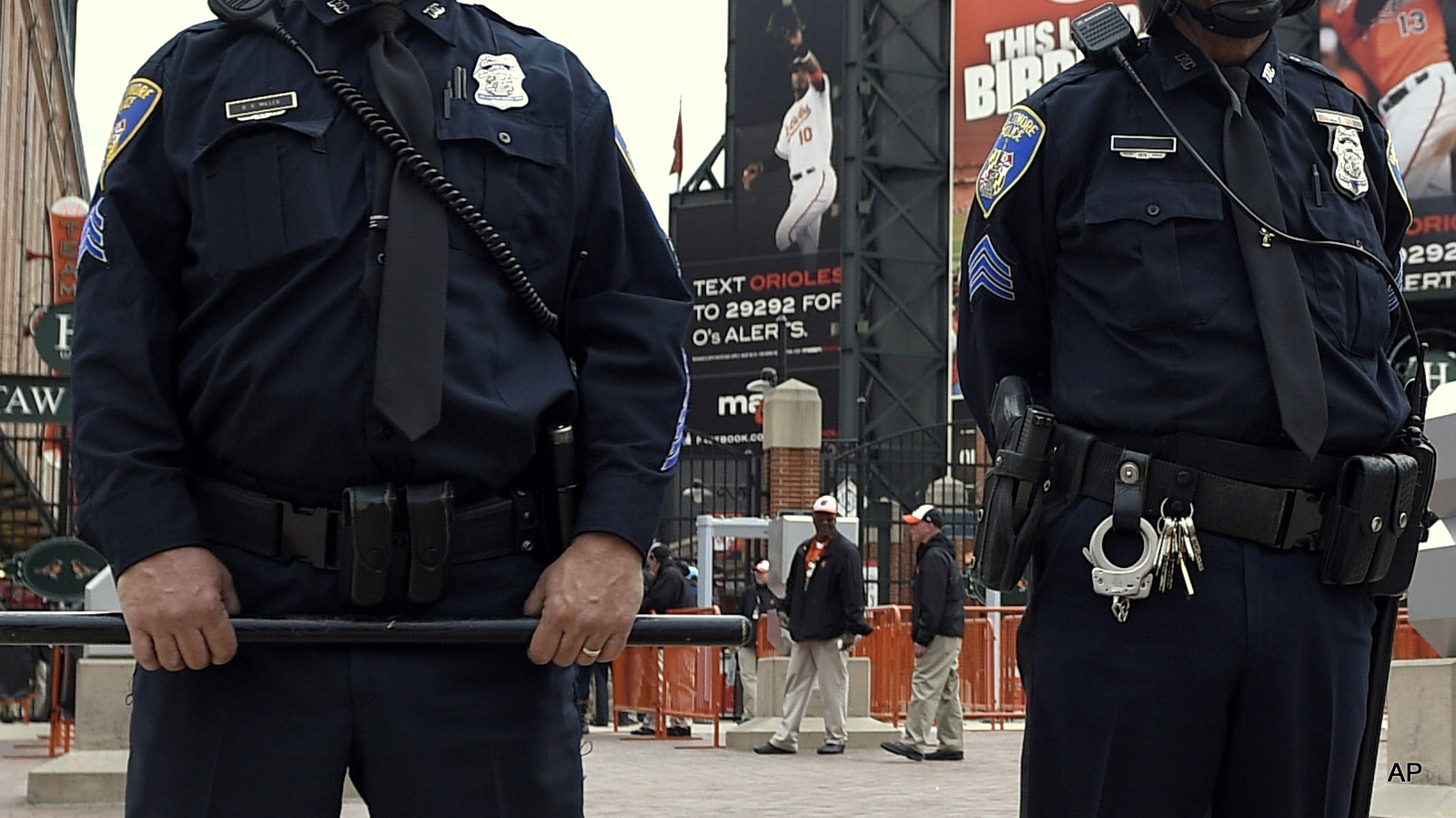 Baltimore police officers stand outside of Oriole Park at Camden Yards, Monday, April 27, 2015, in Baltimore.
Baltimore police officers stand outside of Oriole Park at Camden Yards, Monday, April 27, 2015, in Baltimore.
BALTIMORE — Having weathered two all-night curfews with no major disturbances, Baltimore officials are now trying to manage growing expectations they will immediately decide whether to prosecute six police officers involved in the arrest of a black man who later died of injuries he apparently received while in custody.
In an effort to be transparent, authorities have told the community they plan to turn over the findings of a police investigation into Freddie Gray’s death to a state’s attorney by Friday. Gray’s death from a spinal injury a week after his April 12 arrest is what sparked riots Monday — the worst the city has seen since 1968.
Prosecutors will review the information and eventually decide how to move forward, authorities have said.
But protesters on the streets and high school students who met with Mayor Stephanie Rawlings-Blake on Wednesday have said there are rumors circulating that some kind of “verdict” will be rendered as soon as Friday.
“It became very clear … that people misunderstood,” Rawlings-Blake said.
Both Rawlings-Blake and Baltimore Police Commissioner Anthony Batts spent much of the day Wednesday trying to explain that no final resolution to the case would come Friday.
Hassan Murphy, a lawyer for Gray’s family, underscored their comments, saying, “This family wants justice and they want justice that comes at the right time and not too soon.”
Said Rawlings-Blake: “Whatever time the state’s attorney’s office needs to make that determination, the family wants to get it right.”
Gray, 25, was pinned to a sidewalk, handcuffed and hoisted into a police van where he was put in leg irons after Baltimore officers said he made eye contact with them and ran.
Batts said another man who was in the van during the tail end of Gray’s ride told investigators that Gray was “was still moving around, that he was kicking and making noises” up until the van arrived at the station. Batts said the man also said the driver did not speed, make sudden stops of “drive erratically.”
But somewhere along the way, Gray suffered a fatal spinal injury, and the six officers involved were suspended with pay amid the criminal investigation.
The mayor and others tried to stay focused on the positive Wednesday, applauding residents for obeying the 10 p.m.-5 a.m. curfew that first went into effect Tuesday night and for preventing a repeat of Monday night’s violence. The second nighttime curfew of the week ended at 5 a.m. Thursday with no major disturbances reported.
“Things are looking really good today,” Gov. Larry Hogan told a news conference Wednesday. “Things looked yesterday a lot better than they did the day before. Today they look better than yesterday, so we’re making a lot of progress.”
There were signs throughout the city of life getting back to normal, with schools reopening and cars rolling as usual through streets that had been cleared of debris.
But widespread protests Wednesday night — not only in Baltimore, but in several cities including Boston, New York and Washington, D.C. — made it clear that tensions over the case are far from subsiding.
While the demonstrations were mostly peaceful, police made numerous arrests, including 16 in Baltimore and at least 60 in New York.
Gray’s death was the latest in a series of high-profile cases around the country in which black men have died as the result of encounters with police.
Similar protests have erupted over the deaths of Michael Brown in Ferguson, Missouri, and Eric Garner in New York last year, and the death earlier this month in South Carolina of Walter Scott. Scott was fatally shot in the back by a white police officer who has since been charged with murder.

